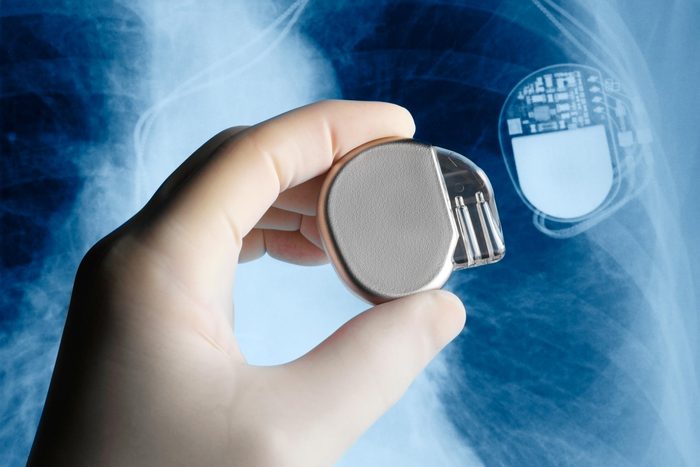
Atrial fibrillation (AFib), a type of irregular heart rhythm, is caused by a number of factors like genetics, coronary artery disease or high blood pressure. But a number of lifestyle factors can also set off AFib. That’s why it’s important to know what causes AFib—and consider your habits that can contribute to it.
Symptoms of AFib can include heart palpitations, fatigue, difficulty breathing and dizziness, but may not exactly be preventable. Knowing what causes AFib can help you identify what you can do to reduce your risk.
“Treating each of these conditions effectively reduce Afib occurrences,” Michael Miller, MD, a cardiologist and professor at University of Pennsylvania, tells The Healthy @Reader’s Digest.
What causes AFib:

1. Alcohol
“Among the most established AFib triggers is alcohol consumption, especially episodes of binge-drinking,” Dr. Miller says.
This can be known as “holiday heart syndrome,” which occurs when an individual lets their hair down and experiences AFib during vacations or heavy bouts of weekend drinking, Dr. Miller explains.
Most Heart Attacks Happen on This Day of the Week, Says New Study
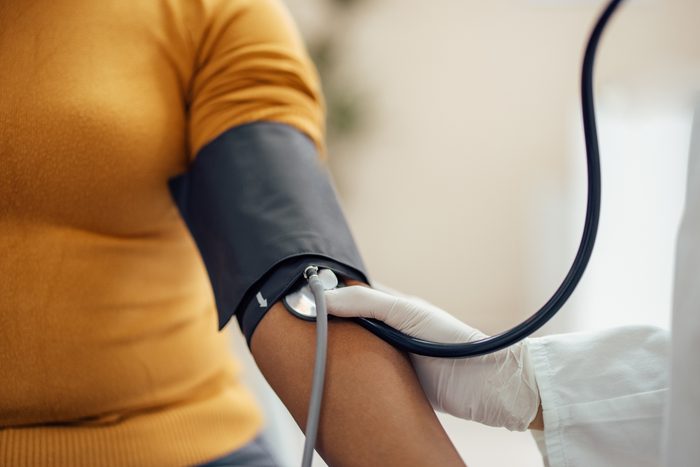
2. Hypertension
Keeping your blood pressure at a healthy level may reduce your risk for AFib too, Dr. Miller adds, as high blood pressure may be a factor in what causes AFib.
A 2023 study found that people with hypertension have a 50% increased risk for developing AFib compared to those without hypertension.
5 Best Blood Pressure Monitors for Home Use, from Cardiology Doctors
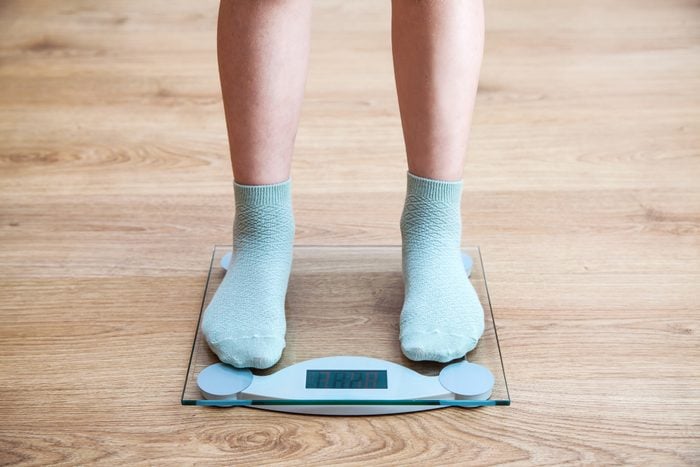
3. Obesity
Being on the heavier side is a known risk factor for AFib as well. According to Harvard Medical School, obesity is linked with changes to electrical signaling within the atria of the heart, in addition to structural changes to the upper chambers of the heart.
Obesity can lead to inflammation by changing hormone and cell-signaling pathways in the atria. As we gain weight, it puts fat into the heart that can set off arrhythmias like AFib.
Anything you can do to shed some weight may be beneficial to help avoid AFib or better manage it.
How to Calculate Macros for Faster Weight Loss, According to an Expert

4. Dehydration
Getting enough fluids in your body is vital for everything—and not having enough water can trigger AFib, Dr. Miller says. But remember holiday heart syndrome? If you drink alcohol, balance it out by getting enough water.
Here’s How Much Water You Really Need in a Day, with Nutritional Scientists’ Wisdom
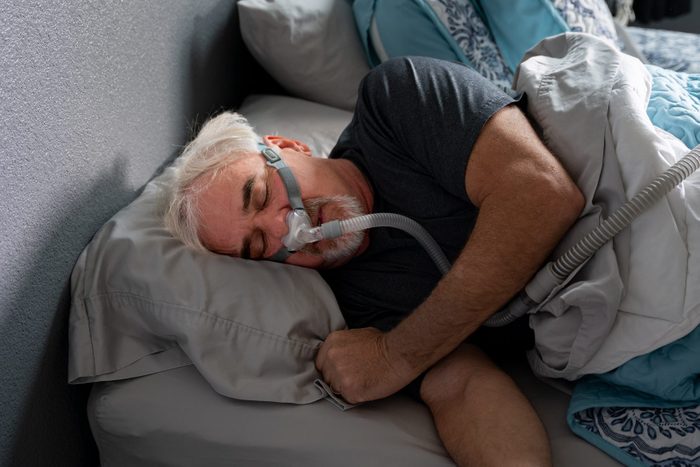
5. Sleep Apnea
You may not suspect that sleep apnea can trigger AFib, but Dr. Miller says that’s definitely the case. People with sleep apnea have four times the risk of getting AFib.
Sleep apnea can lead to risk factors for diabetes and hypertension, too, the Heart Rhythm Society reports.
Managing sleep apnea can have a host of benefits for your health—and preventing or helping ease AFib can be one of them.

Can caffeine affect AFib?
You may have heard that caffeine is an AFib trigger, but Dr. Miller says the link between caffeine and AFib isn’t proven.
“Some studies, in fact, have reported a protective effect between moderate amounts of caffeine”—which Dr. Miller specifies as two to three cups of coffee per day—”and reduced risk of Afib.”
Eating This Berry Can Improve Your Heart & Brain Health in 8 Weeks, New Study Says
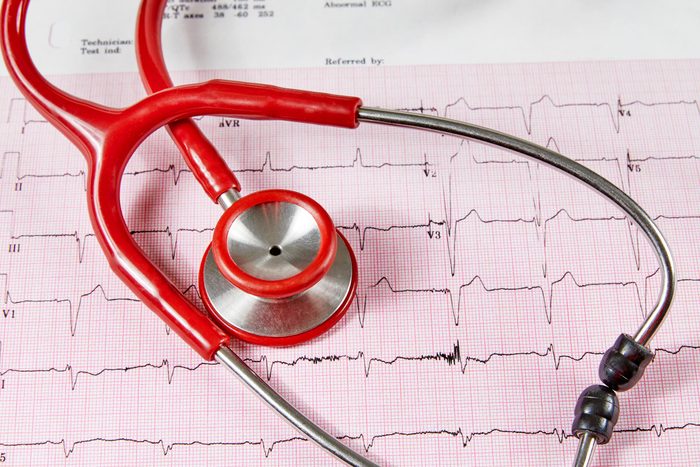
AFib: Reducing your risk
To reduce the likelihood of AFib, Dr. Miller recommends maintaining a healthy body weight, healthy blood pressure, and sleep habits. Managing daily stressors is key, as is staying hydrated. Stay away from binge-drinking, and get moderate physical activity.
- Sleeping for This Long Each Night May Reduce Heart Disease Risk, Says New Study
- This Kind of Exercise Can Reduce Men’s Cancer Risk, Says New Study
- The 5 Biggest Beliefs About Getting Alzheimer’s That Aren’t True, a Gerontologist Says
- New Study: Couples Need These 5 Traits in Common for a Relationship To Last
